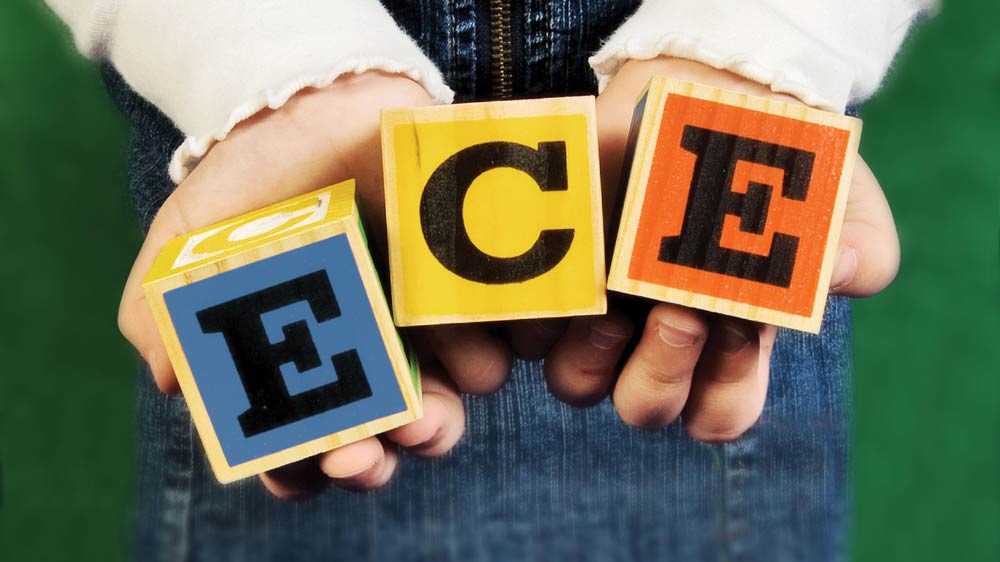The success of a business model for early childhood care and education solely rests on a robust well thought out child-friendly facility
As the most important and impressionable years of growing up, today, the education and care needs in the early childhood stage is a growing concern of many double income nuclear families. This is a time when a child’s emotional, nutritional and physical needs cannot be compromised; these aspects are of great importance in their future growth.
Studies have confirmed that, in from the age of zero to five years, healthy positive reinforcement and a happy environment makes a huge impact on the overall development of a child. Such experiences affect all aspects of their development – physical, intellectual, socio-emotional and spiritual. Awareness of these aspects will decide which crèche or daycare facility will win the trust of their stakeholders or not. With the joint family system giving way to nuclear setups, working parents today are depending a lot on well managed and state-of-the-art crèche and early childhood learning centres.
Need of the hour
So, while choosing an ideal early childhood care and educational facility, a parent will be forced to look for qualities like consideration, awareness, alertness and compassion- these are paramount. Unfortunately, this age group is still not monitored under the Right to Education (RTE) and therefore remains unregulated. However, owing to the fact that a child’s disposition post those years of exposure to a ‘healthy learning environment’ will say it all, Early Childhood Care and Education (ECCE) lead institutions have to create a moral compass for themselves. Therefore, sensitized and well-intentioned caregivers and teachers are of utmost importance. Owners of such schools and care facilities should be professionally well equipped to screen for those who may bring in a sense of discomfort and unrest amongst such young children.
Engagement and activities
Well-intentioned activities and engagement is important for any Early Childhood Care and Education programme. The best are provided by Step-by-Step School in Panchsheel that works on the model of play way and learn through experiential play. They make extensive use of Maria Montessori’s learning equipment and Reggio Emilio’s learning methodology of learning through experiencing nature.
Franchisee models like Eurokids, Kangaroo Kids, Shemrock and Mother’s Pride have made a niche presence in the lucrative and imperative educational need. Each of them follow a unique blend of Montessori and Paige’s Early Childhood Learning models and continue to innovate their curricula year-after-year. The focus is on overall holistic development of the child, a need which is not being met at home, due to obvious reasons.
At the grassroot level
Educational institutions and government bodies worldwide now admit, that even if a child from the marginal strata of society is exposed to proper ECCE facilities, over the next 20 years of such a child, his or her presence would have significantly contributed to the future of that country’s economy. Undeniably, the population is a part of the wealth of a nation, and more so, if has been exposed to holistic education from primitive years.
This was probably the backdrop for Delhi government’s decision of investing into ECCE centres at grassroot level. Reports confirmed that there was plan of establishing about 3,000 of such centres that would comfortably ready about 2.5 to 3 lakh children for school over the next three years.
Filling the gaps
At an Early Childcare and Education conference held in 2014, it was unanimously declared that meaningful early childhood education cannot be delivered without a battery of well trained teachers. Apparently, the Amity Centre for Educational Research and Training (ACERT) in Delhi was an answer to this. The institution has now been researching and formulating a teachers’ training programme that comprises international best practices and ways and means to adapt them in schools. The west wins over India only in this aspect- that they have extremely well defined and structured systems for teacher’s training and student development, well in place. Because there is a gap in the expectations and the deliverables, Early Childhood Care and Education as an important learning milestone, remains neglected.
So, the onus to run an excellent happy establishment rests totally with an owner, who will have to educate himself or herself and provide the best holistic learning environment for early learners.







